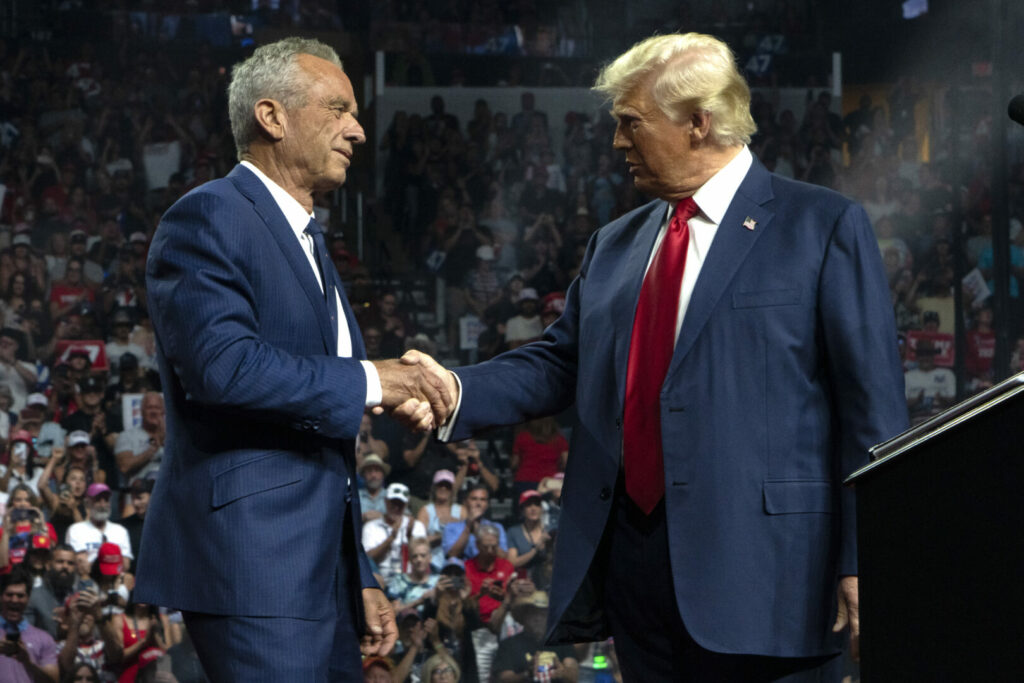Analyzing the Seismic Shift in Health Policy as Trump Assembles His Cabinet
As President-elect Donald Trump finalizes his choices for key health positions within his administration, a prevailing trend emerges: most of his nominees have been vocal critics of the Biden administration’s approach to managing COVID-19.
The Evolving Narrative in Public Health
The pandemic prompted a fundamental reevaluation of public health attitudes across the nation and especially impacted Republican perspectives. Analysts observe that such transformation is reflected in Trump’s appointments to influential U.S. health agencies.
Culmination of Vaccine Skepticism and Critique
A prime example of this shift is Robert F. Kennedy Jr., who has been selected as Trump’s nominee for Secretary of Health and Human Services (HHS). Known for his skepticism towards vaccines and critical views on federal COVID-19 strategies, Kennedy epitomizes a departure from mainstream public health consensus. Republican figures have praised him for challenging established norms despite many of his assertions lacking scientific validation.
Dissenting from conventional wisdom during the pandemic, Kennedy raised objections against vaccinating children against COVID-19 and has led Children’s Health Defense since 2018—a group that strongly opposes vaccination initiatives.
Choosing Leadership with Contrasting Views
Working alongside Trump to assemble leaders for major agencies like the Centers for Disease Control and Prevention (CDC), Centers for Medicare & Medicaid Services (CMS), Food and Drug Administration (FDA), and National Institutes of Health (NIH) allows Kennedy significant influence over public health direction.
Among other noteworthy selections are former Congressman Dave Weldon as CDC head—also known for questioning vaccine efficacy—and Mehmet Oz at CMS, who advocated hydroxychloroquine’s use early during the pandemic despite limited evidence supporting its effectiveness against COVID-19.
The Power Dynamics Shaping Public Trust
Skepticism Towards Institutional Guidelines
The overall makeup of these appointments signals an underlying wariness regarding official recommendations from national healthcare institutions—an attitude starkly visible among Republicans since the onset of the pandemic. Polls indicate a pronounced decline in trust towards public health bodies following their handling of virus prevention measures like mask mandates or vaccinations—issues increasingly viewed through a partisan lens.
“The information was often inconsistent or misleading,” remarked Senator Shelley Moore Capito from West Virginia about responses during the pandemic, noting that perceived benefits were sometimes overstated which likely shaped Trump’s picks.”
Senator Tommy Tuberville also lauded Trump’s selection process by referring to individuals like Kennedy as potential catalysts capable of instigating significant changes within public healthcare frameworks.”
A Growing Concern Among Healthcare Advocates
If Republican leadership embraces these unorthodox approaches toward administering public healthcare concerns without rigorous foundation in empirical research or endorsements from medical authorities—the underlying ramifications could be significant given America’s healthcare expenditure reaches an astronomical $4.5 trillion annually representing 17% GDP contribution.”
// Modified Statistics Added Depending on Details
“The challenge will arise if they veer too far outside scientifically validated practices; it will impede progress,” warned Georges Benjamin—the executive director overseeing American Public Health Association.
hroghqhkjkqfkkdnfgxlhsdjtjbdgj
>tg
ersetzenb rgiajfga
“Trump’s appointments raise questions about their abilityto effectively fulfill their roles without doubts lingering over scientific integrity,” said Richard Besser—a former actingDirectorofCDC.were appointment waslikelyforthe alignmentofbeliefsratherthanqualifications
